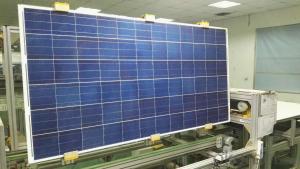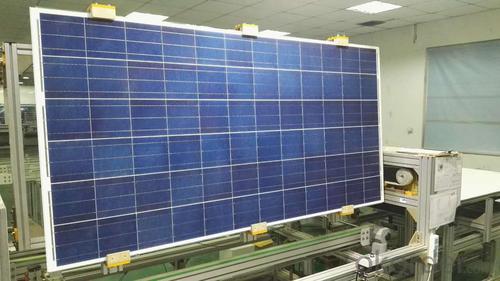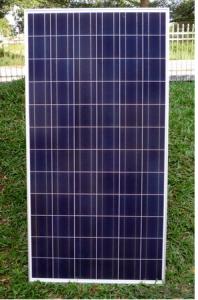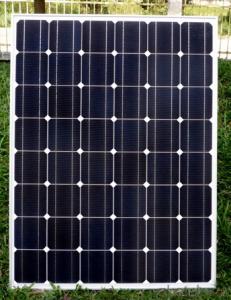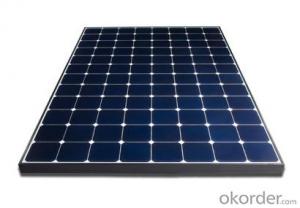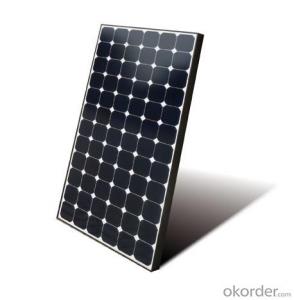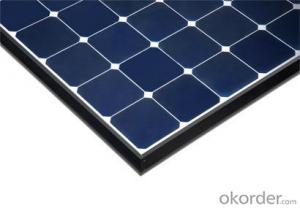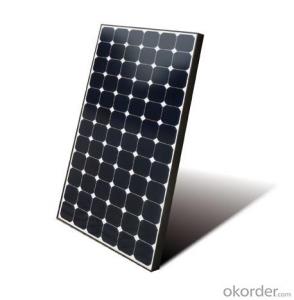Florida Solar Energy Systems - CNBM Poly 50W Off Grid Solar System with 10 Years Warranty
- Loading Port:
- China main port
- Payment Terms:
- TT OR LC
- Min Order Qty:
- 5 watt
- Supply Capability:
- 1000 watt/month
OKorder Service Pledge
OKorder Financial Service
You Might Also Like
Specification
CNBM Poly 50W Off Grid Solar Sytem with 10 Years Warranty
Product description
Off-the-grid is a system and lifestyle[1] designed to help people function without the support of remote infrastructure, such as anelectrical grid. In electricity, off-grid can be stand-alone power system or mini-grids typically to provide a smaller community with electricity. Off-grid electrification is an approach to access electricity used in countries and areas with little access to electricity, due to scattered or distant population. The term off-the-grid (OTG) can refer to living in a self-sufficient manner without reliance on one or more public utilities. People who adopt this lifestyle are called off-gridders.[2]
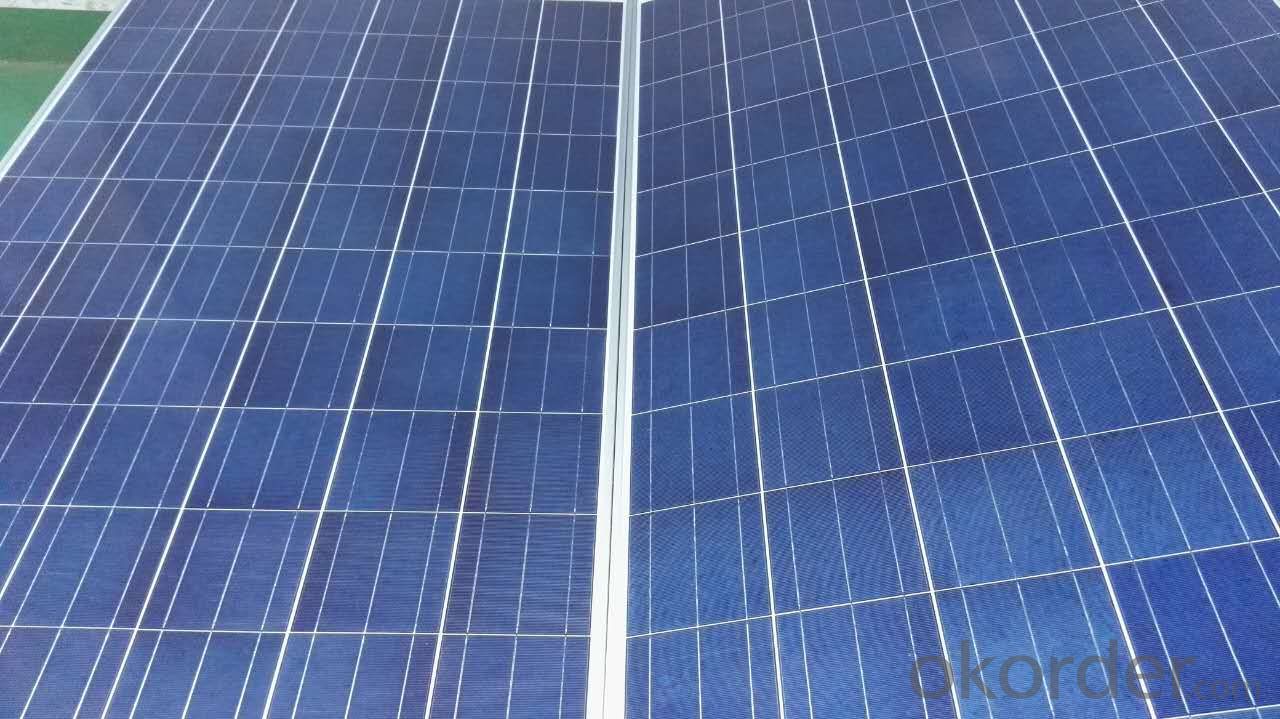
Application
Residential
Commercial
Industrial
Feature
Off-the-grid homes are autonomous; they do not rely on municipal water supply, sewer, natural gas, electrical power grid, or similar utility services. A true off-grid house is able to operate completely independently of all traditional public utility services. The idea has been recently popularized by certain celebrities including Ed Begley, Jr.[3] who stars in the Living with Ed[4] television show on the Home & Garden Television (HGTV) network. Actress Daryl Hannah promotes off-grid living and constructed her home in Colorado according to those principles, as does survival expert and Dual Survival co-star Cody Lundin,[5] who lives in a self-designed, passive solar earth house in the high-desert wilderness of Northern Arizona, collecting rainwater, composting waste, and paying nothing for utilities.[6][7]
Packaging
With carton and box
- Q: How does the angle and orientation of solar panels affect their performance?
- The angle and orientation of solar panels greatly affect their performance. The angle at which the panels are tilted determines how much sunlight they can capture. A panel that is angled towards the sun will receive more direct sunlight, leading to higher energy production. The orientation of the panels, such as facing south in the northern hemisphere or north in the southern hemisphere, also plays a role in maximizing energy output. Properly aligning the panels with the sun's path ensures optimal exposure and improves overall performance.
- Q: Do solar energy systems require grounding?
- Yes, solar energy systems do require grounding for several reasons. Firstly, grounding helps to protect the system and its components from electrical faults, lightning strikes, and power surges by providing a safe path for excess electrical energy to dissipate into the ground. Additionally, grounding helps to minimize the risk of electric shock for individuals who may come into contact with the system. Overall, proper grounding is essential for the safe and efficient operation of solar energy systems.
- Q: Can solar energy systems be installed on recreational vehicles?
- Yes, solar energy systems can be installed on recreational vehicles.
- Q: Can solar energy systems be used for powering security cameras?
- Yes, solar energy systems can be used to power security cameras. Solar panels can be installed to capture sunlight and convert it into electricity, which can then be used to power security cameras and other surveillance equipment. This provides a sustainable and cost-effective solution for remote or off-grid locations where traditional power sources may be unavailable or expensive to connect. Additionally, solar-powered security cameras can operate independently and are not affected by power outages, making them a reliable option for continuous surveillance.
- Q: How much space is required for installing a solar energy system?
- Several factors can influence the amount of space needed to install a solar energy system. These factors include the size of the system, the energy requirements of the property, and the available space. For residential installations, the space needed for solar panels typically ranges from 100 to 400 square feet per kilowatt (kW) of capacity. This estimate includes both the actual area occupied by the panels and the necessary spacing between them for optimal sunlight exposure. In larger-scale or commercial installations, the space required can be much larger. These installations often involve multiple arrays of panels and can require several acres or more. It's important to note that solar energy systems can be installed on various surfaces, such as rooftops, ground-mounted systems, or even integrated into building materials. Rooftop installations are common in residential settings, as they make use of available roof space to maximize energy generation. Ground-mounted systems are often used in commercial or rural areas where there is ample land. To accurately assess the space requirements for your installation, it is essential to consult with a professional solar installer. They can evaluate your specific energy needs, available space, and other site-specific factors. Local regulations and shading from nearby structures or trees can also impact the space needed for a solar energy system.
- Q: Can solar energy systems be used for powering remote communication systems?
- Yes, solar energy systems can be used for powering remote communication systems. Solar panels can convert sunlight into electricity, which can then be stored in batteries for later use. This makes solar energy a reliable and sustainable source of power for remote communication systems, eliminating the need for traditional grid connections or fuel-powered generators. Additionally, solar energy systems can be designed to withstand harsh weather conditions and operate in remote locations, making them an ideal solution for powering communication systems in remote areas.
- Q: Can solar energy systems be used for agricultural purposes?
- Yes, solar energy systems can be used for agricultural purposes. Solar panels can power various agricultural applications such as irrigation systems, livestock watering, crop drying, and greenhouse heating. By harnessing the sun's energy, farmers can reduce their reliance on traditional energy sources and lower operational costs while promoting sustainability in agriculture.
- Q: What is the role of charge controllers in a solar energy system?
- The role of charge controllers in a solar energy system is to regulate and control the flow of electricity between the solar panels and the batteries. They prevent overcharging of batteries by regulating the voltage and current, which helps prolong the battery's lifespan and ensures efficient and safe operation of the entire system.
- Q: How to calculate the income of photovoltaic system
- There are two kinds of algorithms, one for the total solar energy and the total electricity consumption, a solar photovoltaic power generation in real-time and real-time electricity.
- Q: Can solar energy systems be used for powering off-grid islands?
- Yes, solar energy systems can be effectively used for powering off-grid islands. Solar panels can be installed on the island to harness sunlight and convert it into electricity, which can then be stored in batteries for use during nighttime or cloudy days. This provides a reliable and sustainable source of energy, reducing dependence on fossil fuels and minimizing environmental impact.
Send your message to us
Florida Solar Energy Systems - CNBM Poly 50W Off Grid Solar System with 10 Years Warranty
- Loading Port:
- China main port
- Payment Terms:
- TT OR LC
- Min Order Qty:
- 5 watt
- Supply Capability:
- 1000 watt/month
OKorder Service Pledge
OKorder Financial Service
Similar products
Hot products
Hot Searches
Related keywords
